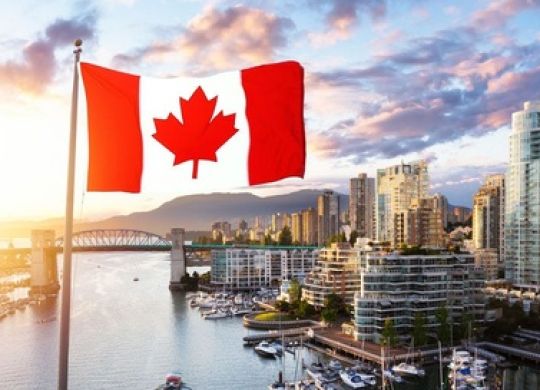Digital nomad visa in Italy: procedure for obtaining in 2024

Remote workers can use the Digital Nomad visa to legally reside in Italy. Find out more about the requirements for recipients, the duration of the procedure, and the necessary documents for obtaining a digital nomad visa in Italy in 2024
The Covid-19 pandemic has become a catalyst for global changes in the structure of the labor market, provoking a massive spread of remote work. This revolutionary leap in employment has spurred new initiatives from many countries to attract digital nomads.
Greece opened a visa program for digital nomads back in 2021, responding to changes in international employment. Portugal was able to join the movement in October 2022, and Spain launched its program in mid-2023, opening its doors to digital nomads.
The Italian government, considering the prospects of long-term changes in the labor structure, announced the creation of a visa program for digital nomads in 2022. It was assumed that foreigners with a permanent income from remote work would be able to obtain an annual visa and pay a fixed tax of 5% of their annual earnings to the Italian treasury.
However, the project was temporarily suspended due to the need to clarify the criteria and requirements for candidates. Finally, in March 2024, Italy launched this visa program for digital nomads.
General information about Digital Nomad visa in Italy
In January 2022, the Italian government adopted amendments to the immigration law, including a new clause to introduce a visa for digital nomads from third countries. These amendments were approved by the Italian Parliament two months later, but the visa itself has not yet been launched.
According to the plan of the Italian immigration service, the visa for digital nomads will be issued for a year with the possibility of extension. In addition, applicants will have the right to bring their family to Italy.
For third-country nationals (cittadini extracomunitari), Italy has quotas known as flussi. Every year, the government sets limits on the number of workers who can come to Italy for self-employment or hired work. For 2024, only 151,000 quotas were allocated for workers of all professions and nationalities. The decree on quotas is published every year in January, and often the places are filled in February-March.
Third-country nationals applying for a work visa must also obtain a Nulla osta, a special certificate from the Italian immigration service confirming their suitability for employment.
However, digital nomads will have the opportunity to apply for a visa outside the quota and without obtaining a Nulla osta. This means that more skilled workers will be able to access the program.
The visa for digital nomads will be classified as a type D national visa, which allows staying in Italy for more than 90 consecutive days. The visa application process will be standard: the applicant will submit documents to the Italian consulate in their country or place of residence, and after the visa is approved, they will be able to enter Italy and apply for permanent residence within 8 days.
Who can get a Digital Nomad visa in Italy in 2024?
According to the updated amendments to the Immigration Law, foreigners will be able to apply for a Digital Nomad visa if they meet the following criteria:
1. They can be considered highly skilled workers, which covers a wide range of professions from IT specialists to artists, from accountants to sailors;
2. They work remotely or autonomously under a contract with a foreign company, using technological tools to perform their work.
In addition, an applicant for a Digital Nomad visa must have proof of:
1. A rental agreement for housing in Italy;
2. Sufficient income to provide for themselves and their family during their stay in the country;
3. No criminal record;
4. Health insurance coverage.
Applicants will also have the option to add family members to their visa authorization, which will most likely include a spouse and children. However, the specific requirements for qualifications and other aspects remain to be determined and may be clarified when applying for a visa.
For safe relocation to any country in the world, obtaining citizenship and employment, use the advice of an international lawyer. We help you solve complex and simple issues for your comfort and safety anywhere in the world.
Legal grounds for freelancers to reside in Italy
Self-employment visa, or Lavoro Autonomo, is a visa that allows you to work remotely in Italy. This visa is granted to freelancers, startups and entrepreneurs who wish to work remotely and develop their business in the country. The main characteristics of the visa include:
1. Stay in Italy for more than 90 consecutive days;
2. The ability to start your own business and work autonomously.
When applying for a visa, applicants must obtain a Nulla Osta and a work permit from the Italian Chamber of Commerce. The visa application can be submitted in person, having arrived in Italy on a Schengen visa, or through a representative by power of attorney.
Visa documents are submitted to the Italian consulate of the applicant's country of citizenship or residence. After the visa is approved, the foreigner returns to Italy and applies for a residence permit within 8 days. The resident card is issued for a period of 2 years with the possibility of extension.
The disadvantage of the Self-employment visa is that it is issued only according to quotas, which range from 2000 to 3000 cards per year. At the beginning of the year, the Italian government publishes a decree on accepting documents of foreign workers for several months. At other times, it is impossible to obtain this visa.
An investor visa for foreigners has been available in Italy since 2017. This is a unique opportunity to obtain residence by investing in the country's economy under various programs.
Investors have the opportunity to obtain Nulla Osta after making the relevant investments and applying for a visa. The visa is valid for a year, during which time the applicant must arrive in Italy and apply for a residence permit within 8 days.
Investors are allowed to relocate and work in Italy at will, not by obligation. No special work permit is required.
To obtain an investor visa, applicants must fulfill one of the following investment conditions:
1. Acquire a share or shares in an innovative startup for the amount of 250,000 euros or more;
2. To purchase a share or shares in a local limited liability company for the amount of 500,000 euros or more;
3. Make a charitable donation to socially significant projects in the amount of 1000000 euros or more;
4. Purchase government bonds for the amount of 2000000 euros or more.
A residence permit is issued for two years and can be extended for another three years. An investor visa can be obtained by foreigners over the age of 18 with legal income and no criminal record. In addition, the visa application package must include health insurance and a lease or purchase agreement for residential real estate in Italy.
The investor has the right to include his or her family in the application: spouse and children under 18. Parents and children over 18 can also be included in the application if the investor financially supports them.
Stages of obtaining a digital nomad visa in Italy 2024
The process of obtaining an Italian residence permit can take from 3 months and differ for different categories of applicants. One example is obtaining a residence permit in Italy by remote workers with a Self employment visa.
1. Obtaining Nulla Osta. A foreigner applies to the local immigration office or through a representative. The bureau reviews the documents within 30 days and notifies the issuance of a Nulla Osta certificate, which is valid for 6 months and gives the right to apply for a visa;
2. Obtaining a work permit. Applicants receive a work permit in Italy from the Chamber of Commerce and Industry according to their qualifications;
3. Submitting a visa application. While Nulla Osta is in force, a foreigner applies for a visa at the Italian consulate. The required documents include: a copy of the passport, Nulla Osta certificate, a contract for the purchase or lease of residential real estate in Italy, proof of income, marriage certificate or lack thereof, and a photograph;
4. Obtaining a visa. The Italian Consulate checks the applicant's documents within 120 days. Visas are usually approved within 10-20 days from the date of application;
5. Applying for a residence permit. While the visa is valid, the foreigner arrives in Italy and applies for a residence permit within 8 days;
6. Obtaining a residence permit card. The Italian Migration Service reviews the documents within about 30 days. The residence permit card is issued for 2 years with the possibility of extension.
Documents required to obtain a digital nomad visa in Italy
To obtain a digital nomad visa for Italy, you need to have a certain package of documents that will confirm your eligibility and ensure your legal stay and work in the country. Here is the list of documents you will need:
1. Valid passport: the passport must have at least two blank pages for visa stamps;
2. Completed visa application form: you need to fill out the digital nomad visa application form correctly;
3. Two photos: the photos must meet the requirements of the Italian consulate;
4. Certificate of no criminal record: the applicant needs to submit a certificate of no criminal record from all places of residence for the last 5 years;
5. Documents on financial solvency: bank statement or other documents confirming your income and financial stability. The minimum income must be at least €28200 per year or €2350 per month;
6. Proof of accommodation: a lease agreement or short-term accommodation reservation in Italy is suitable;
7. Health insurance: must be private or public to ensure medical coverage in Italy;
8. Documents on education and professional qualifications: additional documents such as diplomas, certificates confirming your professional qualifications.
All official documents must be apostilled and certified by the Italian Consulate or an accredited translator. After collecting all the necessary documents, the applicant can apply at the nearest Italian consulate or visa center. The consular fee for a digital nomad visa is €116.
The first residence permit on a digital nomad visa will be issued for 1 year with the possibility of extension without leaving Italy. After five years of permanent residence, a digital nomad can apply for a permesso di soggiorno di lungo periodo (permanent residence).
Igor Usyk - Head of Migration department at VisitWorld
To ensure a safe move to a new country, I advise you to consult a specialist. My colleagues, qualified specialists with a legal education, will help you avoid unpleasant situations during migration.
Products from Visit World for a comfortable trip:
Checklist for obtaining a visa and necessary documents in Italy;
Legal advice on immigration in Italy;
Travel insurance for foreigners in Italy;
Medical insurance all over the world.
Recommended articles
4 min
Expats
Moving to Canada in 2024: advantages and disadvantages of living in the country
Every year, more and more foreigners dream of moving to Canada. And this is not surprising, as the country has a stable economy, ample opportunities for career growth, affordable healthcare services and quality education. However, moving to a new country has its pros and cons. Read more about the advantages and disadvantages of living in Canada for foreigners in 2024
22 kwi. 2024
More details2 min
Residence permit
In which countries is it possible to obtain citizenship by birth in 2025?
Children can obtain citizenship at the place of birth, regardless of their parents' citizenship and nationality. Find out more about which countries will grant citizenship by birth on their territory in 2025
02 lut. 2025
More details3 min
Expats
Hungary Digital Nomadi Visa: procedure for obtaining in 2024
The Hungarian White Card, also known as the Digital Nomad Visa, is intended for individuals who wish to live and work remotely in Hungary for up to 1 year. The visa was created to promote the country as a place for remote work. Read more about the benefits and features of obtaining a digital nomad visa for Hungary in 2024
24 kwi. 2024
More details2 min
Popular
Non-CRS countries that guarantee banking privacy
More than 120 countries have already become members of the Common Reporting Standard (CRS) system. Therefore, it is becoming increasingly difficult to legally protect your financial position from prying eyes. Learn more about how to legally diversify your finances in non-CRS jurisdictions in 2025
16 sie. 2025
More detailsAll materials and articles are owned by VisitWorld.Today and are protected by international intellectual property regulations. When using materials, approval from VisitWorld.Today is required.
